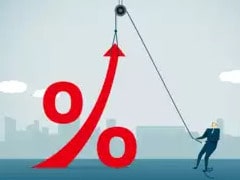
Designer collaborations are a trend that has become increasingly popular in the fashion industry over the last few decades. These collaborations involve two or more fashion brands coming together to create a limited edition collection that combines their unique styles and design aesthetics. Designer collabs have become a highly anticipated event in the fashion world, with fans eagerly waiting to see what two brands will create together.
The first designer collaboration is said to have occurred in 1993 when H&M partnered with designer Karl Lagerfeld. The collection was a huge success, and it paved the way for other designer collaborations in the years that followed. Today, designer collaborations are common in the fashion industry, with high-end designers partnering with mass-market retailers and fast-fashion brands.
One of the benefits of designer collaborations is that they allow brands to reach new audiences. High-end designers who may not be accessible to the average consumer can now reach a wider market through collaborations with mass-market retailers. This has allowed luxury brands to tap into the fast-fashion market and appeal to a younger, more diverse audience.
Designer collaborations also provide an opportunity for brands to experiment with new styles and design concepts. When two brands collaborate, they can combine their unique styles and design aesthetics to create something that is fresh and innovative. This can help brands stay relevant and competitive in an industry that is constantly changing.
Designer collaborations have also become a marketing tool for fashion brands. These collaborations generate a lot of buzz and excitement among consumers, which can lead to increased sales and brand exposure. Brands often promote their collaborations through social media and advertising campaigns, creating hype around the release of the collection.
However, there are also criticisms of designer collaborations. Some argue that these collaborations can dilute the brand’s identity and reputation. When a high-end designer partners with a mass-market retailer, it can be seen as a betrayal of the brand’s exclusivity and luxury status. This can be damaging to the brand’s reputation and may alienate some of its core customers.
Another criticism of designer collaborations is that they can be unsustainable and contribute to the problem of fast fashion. These collaborations often involve producing large quantities of clothing to meet the high demand from consumers. This can lead to overproduction, waste, and environmental harm.
Despite these criticisms, designer collaborations show no signs of slowing down. In fact, they have become a staple in the fashion industry and have been embraced by both designers and consumers. Many collaborations have been highly successful, with collections selling out within hours of their release.
In recent years, we have seen some exciting designer collaborations. Some notable examples include the collaboration between Alexander McQueen and Puma, the collaboration between Louis Vuitton and Supreme, and the collaboration between H&M and Moschino. These collaborations have brought together some of the biggest names in the fashion industry and have produced some truly unique and innovative collections.
In conclusion, designer collaborations have become a popular trend in the fashion industry. They allow brands to reach new audiences, experiment with new styles, and generate buzz and excitement around their products. While there are criticisms of designer collaborations, their popularity shows no signs of slowing down. We can expect to see more exciting collaborations in the future as brands continue to push the boundaries of fashion and design.









